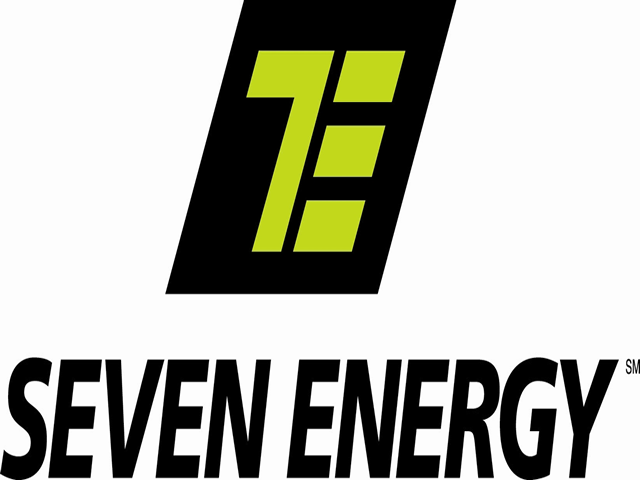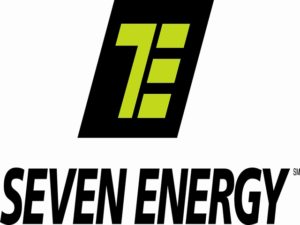Economy
Fitch Downgrades Seven Energy Int’l Ltd to ‘RD’


By Modupe Gbadeyanka
Fitch Ratings has downgraded Nigeria-based Seven Energy International Limited’s Issuer Default Rating to ‘RD’ from ‘C’ following the announcement of the results of the consent solicitation for the 10.25 percent $300m senior secured notes due 2021: 95.31 percent of the noteholders voted in favour of the proposal. Simultaneously, Fitch has affirmed the senior secured rating of wholly owned subsidiary Seven Energy Finance Limited’s $300m notes at ‘C’ with a ‘RR6’ Recovery Rating.
The accepted proposal qualifies as a distressed debt exchange under Fitch’s criteria as it imposes a material reduction in terms compared with the original ones and is conducted to avoid a payment default. Under the new terms, Seven Energy may choose to pay interest on the notes in kind, ie by increasing the principal amount of the outstanding notes or by issuing additional notes for up to four coupon payments between 11 October 2016 and 11 April 2018.
Seven Energy remains under severe liquidity pressure due to a combination of factors including: the fall in oil prices, a limited ability to convert naira into dollars, and the prolonged Forcados export pipeline closure, which has resulted in no oil lifting since February 2016. In addition to the notes consent solicitation, the company has recently agreed with the Accugas IV facility bank lenders to defer the amortisation schedule for debt payments into 2018. It is also working on a new facility with Nigerian and international banks and development finance institutions for longer-term credit facilities. Therefore the ‘RD’ rating is likely to remain until we have more clarity on Seven Energy’s post-deal liquidity and financial structure.
KEY RATING DRIVERS
Developing Natural Gas Business
Seven Energy’s management views the natural gas business in Nigeria’s southeast as an important growth driver for the company. In 9M16, Seven Energy’s average deliveries of natural gas reached 80 million cubic feet per day (MMcfpd), up from 64MMcfpd in 9M15. Its gas offtakers include three power stations (Alaoji, Calabar and Ibom), the Unicem cement plant and a fertiliser factory. In November 2016, Seven Energy completed the 69km Uquo-Creek Town pipeline to supply gas to Calabar and Unicem and signed a USD112m partial risk guarantee with Nigeria’s federal government for gas supply to Calabar and other customers.
The company is now on track to ramp up gas sales to 150MMcfpd and beyond. The installation of electricity distribution infrastructure to allow the power stations to run at full capacity has now been completed and Calabar is able to generate additional electricity.
The natural gas assets are fully ring-fenced and serve as security for the Accugas IV loan. There is a risk that the lenders may decide to enforce the security, stripping the company of its main cash generating asset and effectively forcing it into liquidation.
Strategic Alliance Agreement Halted
All Seven Energy’s oil liftings from OML 4, 38 and 41 under the strategic alliance agreement with the state-owned NPDC have been stopped since February 2016, as the Forcados oil terminal remains shut due to the rise in militant attacks. Management gives no estimate on when Forcados will be restarted and we understand is considering alternative means to export crude.
Naira Convertibility Issues
Seven Energy’s natural gas revenues are US dollar pegged but are received in naira. We understand from management that there are difficulties in Nigeria regarding exchanging naira into US dollars, which are needed to service the compay’s US dollar debt at the official exchange rate. This negatively affects the company’s liquidity as long as Forcados remains shut, meaning that the company receives no US dollar revenue under the strategic alliance agreement.
KEY ASSUMPTIONS
– Brent oil price deck of USD44/bbl in 2016, USD45/bbl in 2017, USD55/bbl 2018.
– SAA’s FCF negative in 2016; turning positive in 2017-2018.
– Natural gas sales volumes ramping up to 150MMcfpd a year in 2017 and 2018.
– Proposed restructuring implemented.
RATING SENSITIVITIES
Future Developments That May, Individually or Collectively, Lead to Positive Rating Action
– The ‘RD’ rating will be reviewed following the financial restructuring once sufficient information is available to reflect the appropriate IDR for the issuer’s post-exchange capital structure, risk profile and prospects in accordance with relevant criteria.
Future Developments That May, Individually or Collectively, Lead to Negative Rating Action
– Bankruptcy filings, administration, receivership, liquidation or other formal winding-up procedure affecting Seven Energy would result in a downgrade to ‘D’.
LIQUIDITY
Limited Liquidity
At 30 September 2016, Seven Energy’s cash on hand was USD24m, well short of the USD396m in short-term debt at this date; this amount is prior to ongoing debt renegotiations. In 9M16, Seven Energy used up nearly USD92m in cash due to high capex and interest payments, before new equity raising and debt refinancing. We understand the company is negotiating to increase the limit of its existing working-capital facility.
Economy
Tinubu to Present 2025 Budget of N47.9trn to NASS December 17

By Aduragbemi Omiyale
On Tuesday, December 17, 2024, President Bola Tinubu will present the 2025 budget to a joint session of the National Assembly.
The size of the 2025 Appropriation Bill is about N47.9 trillion and would be presented to the parliament for approval.
Speaking at the plenary on Thursday, December 12, 2024, the President of the Senate, Mr Godswill Akpabio, said the presentation by Mr Tinubu would be at the chamber of the House of Representatives.
However, it is not certain if the lawmakers will pass the budget before December 31 to allow for a recent budget cycle of January to December.
Recall that on December 3, the senate approved the Medium Term Expenditure Framework and Fiscal Strategy Paper (MTEF/FSP) for 2025 to 2027.
This was after the President presented this the National Assembly on November 19 ahead of the consideration of the 2025 budget proposal.
In the MTEF/FSP, the government said it planned to borrow about N9.22 trillion from local and foreign sources to finance the budget deficit.
It pegged the crude oil benchmark at $75 per barrel and a daily oil production of 2.06 million barrels at an exchange rate of N1,400 to $1, and a targeted gross domestic product (GDP) growth rate of 6.4 percent.
At the plenary today, Mr Akpabio informed his colleagues that, “The President has made his intention known to the National Assembly to present the 2025 budget to the joint session of the National Assembly on December 17, 2024.”
Economy
Nigeria Adds 150,000 b/d Crude Production in November 2024

By Adedapo Adesanya
Nigeria added 150,000 barrels per day to its crude production in November 2024 as it continues to pursue an ambitious 2 million barrels per day target.
According to the Organisation of the Petroleum Exporting Countries (OPEC), Nigeria’s oil production rose to 1.48 million barrels per day in November, up from 1.33 million barrels per day the previous month.
In its Monthly Oil Market Report (MOMR), OPEC revealed that at 1.48 million barrels per day, it is the continent’s leading oil producer, surpassing Algeria’s 908,000 barrels per day and Congo’s 268,000 barrels per day.
Business Post reports that OPEC doesn’t account for condensates, which Nigeria’s accounts for in its broader 2 million barrels per day target.
Despite the surge in production levels, Nigeria is still under producing its 1.5 million barrels per day output quota under a deal involving OPEC and 10 other producers known as OPEC+.
OPEC said it relied on primary data gotten through direct communication, noting that secondary sources reported 1.417 million barrels per day as Nigeria’s crude production in November — up from 1.4 million barrels per day in October.
The data also shows that OPEC’s total oil production among its 12 members rose by 104,000 barrels per day in the month under review.
According to secondary sources, the total of the 12 OPEC countries’ crude oil production averaged 26.66 million barrels per day in November 2024.
“Crude oil output increased mainly in Libya, Iran, and Nigeria, while production in Iraq, Venezuela, and Kuwait decreased”, OPEC said.
“At the same time, total non-OPEC DoC crude oil production averaged 14.01 mb/d in November 2024, which is 219 tb/d higher, m-o-m. Crude oil output increased mainly in Kazakhstan and Malaysia,” the organisation added.
In a related development, OPEC trimmed its 2024 and 2025 oil demand growth forecasts for the fifth time this year.
Now, the cartel expects the world’s oil demand growth at 1.61 million barrels per day from the previously 1.82 million barrels per day.
For 2025, OPEC says the world oil demand growth forecast is now at 1.45 million barrels per day, a 900,000 barrels per day cut from the previously expected 1.54 million barrels per day.
On the changes, OPEC says that the downgrade for this year owes to more bearish data received in the third quarter of 2024 while the projections for next year relate to the potential impact that will arise from US tariffs.
Economy
Afriland Properties, Geo-Fluids Shrink OTC Securities Exchange by 0.06%

By Adedapo Adesanya
The duo of Afriland Properties Plc and Geo-Fluids Plc crashed the NASD Over-the-Counter (OTC) Securities Exchange by a marginal 0.06 per cent on Wednesday, December 11 due to profit-taking activities.
The OTC securities exchange experienced a downfall at midweek despite UBN Property Plc posting a price appreciation of 17 Kobo to close at N1.96 per share, in contrast to Tuesday’s closing price of N1.79.
Business Post reports that Afriland Properties Plc slid by N1.14 to finish at N15.80 per unit versus the preceding day’s N16.94 per unit, and Geo-Fluids Plc declined by 1 Kobo to trade at N3.92 per share compared with the N3.93 it ended a day earlier.
At the close of transactions, the market capitalisation of the bourse, which measures the total value of securities on the platform, shrank by N650 million to finish at N1.055 trillion compared with the previous day’s N1.056 trillion and the NASD Unlisted Security Index (NSI) went down by 1.86 points to wrap the session at 3,012.50 points compared with 3,014.36 points recorded in the previous session.
The alternative stock market was busy yesterday as the volume of securities traded by investors soared by 146.9 per cent to 5.9 million units from 2.4 million units, as the value of shares transacted by the market participants jumped by 360.9 per cent to N22.5 million from N4.9 million, and the number of deals increased by 50 per cent to 21 deals from 14 deals.
When the bourse closed for the day, Geo-Fluids Plc remained the most active stock by volume (year-to-date) with 1.7 billion units valued at N3.9 billion, followed by Okitipupa Plc with 752.2 million units worth N7.8 billion, and Afriland Properties Plc 297.5 million units sold for N5.3 million.
Also, Aradel Holdings Plc, which is now listed on the Nigerian Exchange (NGX) Limited after its exit from NASD, remained the most active stock by value (year-to-date) with 108.7 million units sold for N89.2 billion, trailed by Okitipupa Plc with 752.2 million units valued at N7.8 billion, and Afriland Properties Plc with 297.5 million units worth N5.3 billion.
-

 Feature/OPED5 years ago
Feature/OPED5 years agoDavos was Different this year
-
Travel/Tourism8 years ago
Lagos Seals Western Lodge Hotel In Ikorodu
-

 Showbiz2 years ago
Showbiz2 years agoEstranged Lover Releases Videos of Empress Njamah Bathing
-

 Banking6 years ago
Banking6 years agoSort Codes of GTBank Branches in Nigeria
-

 Economy2 years ago
Economy2 years agoSubsidy Removal: CNG at N130 Per Litre Cheaper Than Petrol—IPMAN
-

 Banking2 years ago
Banking2 years agoFirst Bank Announces Planned Downtime
-

 Sports2 years ago
Sports2 years agoHighest Paid Nigerian Footballer – How Much Do Nigerian Footballers Earn
-

 Technology4 years ago
Technology4 years agoHow To Link Your MTN, Airtel, Glo, 9mobile Lines to NIN
















